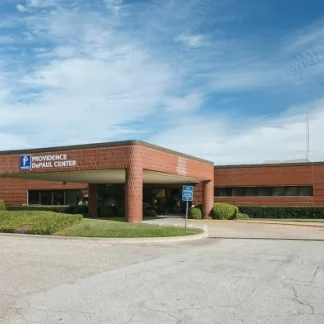Alliance Care
Alliance Care is a private rehab located in Waco, Texas. Alliance Care specializ...
Ascension Providence DePaul Center, located in Waco, Texas, offers programs that address complications linked to mental illness, including drug and alcohol addiction and social isolation. They provide personalized care plans that address prevention, interventions, treatments, and recovery support services.
Ascension Providence DePaul Center offers inpatient and partial hospitalization treatment.
Inpatient treatment is for those who need mental and physical stabilization. This is a highly structured and monitored style of treatment that often incorporates detoxification into the process. Once stabilization has been achieved, counseling, educational classes, and behavioral approaches to treatment can begin. Common elements of inpatient include individual therapy, group therapy, and at times medication or trauma-informed counseling.
Partial Hospitalization is a day treatment program that is highly structured, yet allows for the flexibility of returning home in the evening. This program requires that there is no immediate danger that would require inpatient hospitalization. It incorporates clinical treatment practices for addiction such as medications, individual and group therapy, and trauma-related counseling. Evidence-based approaches such as cognitive behavioral therapy, dialectical behavioral therapy, and motivational interviewing are incorporated into the treatment process.
Mental health treatment focuses on helping individuals recover from mental illnesses like bipolar disorder, clinical depression, anxiety disorders, schizophrenia, and other challenging psychiatric conditions. Individual therapy, group therapy, and family therapy all serve as ways to deliver mental health support. These services can be administered while in an inpatient setting, within an outpatient setting, or at a clinical office.
Individual therapy creates the space to explore the psychological challenges associated with the addiction. With the help of a professional, individuals are given the space and direction to talk about and process their emotions. Often this includes unresolved trauma, anger, depression, anxiety, and the need for more control or autonomy in life. It also often explores childhood wounding and the resiliency available to each person through effective and meaningful therapy.
Contact us for more information: (254) 776-5970

Connect with Ascension Providence DePaul Center by calling their admissions team directly.
(254) 776-5970 Website Get DirectionsState Licenses are permits issued by government agencies that allow rehab organizations to conduct business legally within a certain geographical area. Typically, the kind of program a rehab facility offers, along with its physical location, determines which licenses are required to operate legally.
State License: Texas License Number: 1033436407
Research clearly demonstrates that recovery is far more successful and sustainable when loved ones like family members participate in rehab and substance abuse treatment. Genetic factors may be at play when it comes to drug and alcohol addiction, as well as mental health issues. Family dynamics often play a critical role in addiction triggers, and if properly educated, family members can be a strong source of support when it comes to rehabilitation.
Group therapy is any therapeutic work that happens in a group (not one-on-one). There are a number of different group therapy modalities, including support groups, experiential therapy, psycho-education, and more. Group therapy involves treatment as well as processing interaction between group members.
In individual therapy, a patient meets one-on-one with a trained psychologist or counselor. Therapy is a pivotal part of effective substance abuse treatment, as it often covers root causes of addiction, including challenges faced by the patient in their social, family, and work/school life.
Group therapy is any therapeutic work that happens in a group (not one-on-one). There are a number of different group therapy modalities, including support groups, experiential therapy, psycho-education, and more. Group therapy involves treatment as well as processing interaction between group members.
In individual therapy, a patient meets one-on-one with a trained psychologist or counselor. Therapy is a pivotal part of effective substance abuse treatment, as it often covers root causes of addiction, including challenges faced by the patient in their social, family, and work/school life.
In individual therapy, a patient meets one-on-one with a trained psychologist or counselor. Therapy is a pivotal part of effective substance abuse treatment, as it often covers root causes of addiction, including challenges faced by the patient in their social, family, and work/school life.
Alliance Care is a private rehab located in Waco, Texas. Alliance Care specializ...
Waco Center for Youth is a psychiatric facility that treats teens ages 13 – 17 s...
MedMark Treatment Centers offers outpatient medication assisted treatment for op...
Freeman Center – Men’s is a private rehab located in Waco, Texas. Freeman Center...